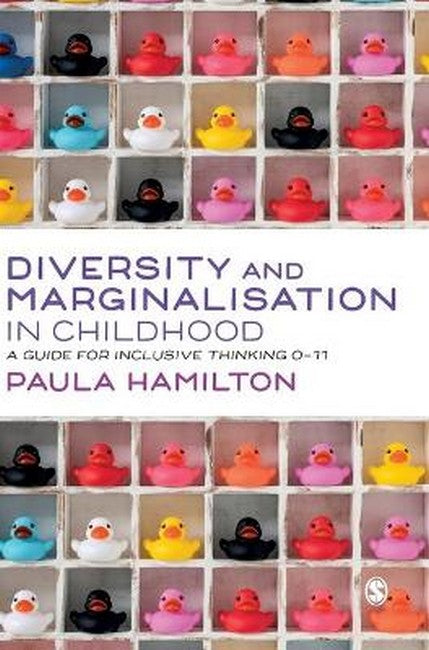Paula Hamilton is a senior lecturer at the University of Chester. After completing a teacher training degree in the early 1990s, Paula worked on a European research project which focused on health promoting schools. She then spent 10 years within further education teaching on early childhood studies and health and social care courses. Since 2007, she has worked as a senior lecturer in higher education lecturing on programmes relating to early childhood, family, youth and education studies. Her PhD, completed in 2011, focused on the inclusion of migrant worker children into primary schools in North Wales. Paula's research and publications lie in the field of social justice, inclusion, diversity and the health and well-being of children, young people and families.
Request Academic Copy
Please copy the ISBN for submitting review copy form
Description
Introduction: Understanding Marginalisation Chapter 1: Critical Inclusion: Concepts, Theories, Challenges and Practice Chapter 2: Mass Media, Social Bias and the Representation of Minority and Marginalised Groups Chapter 3: Child Poverty and Low-Income Families Chapter 4: Stigma of Mental Ill-Health in Childhood Chapter 5: Children with Special Educational Needs and Disabilities Chapter 6: Children in Care, Fostering and Adoption Chapter 7: Gender Development and Identities: Intersex and Transgender Children Chapter 8: Religion, Antisemitism and Islamophobia Chapter 9: Asylum Seeker and Refugee Children (and Children who have English as an Additional Language) Chapter 10: Gypsy, Roma and Traveller children Chapter 11: Supporting 'Most Able' Children Conclusion: Final Thoughts on Critical Inclusion
Diversity and Marginalisation in Childhood is a work of critical inclusive education. It is accessibly written but also demands critical thinking. Hamilton introduces readers to the philosophical and sociological schools upon which much policy and practice is based and encourages, through good use of case study-based tasks, readers to link theory with practice in inclusive education. -- Dominic Griffiths

